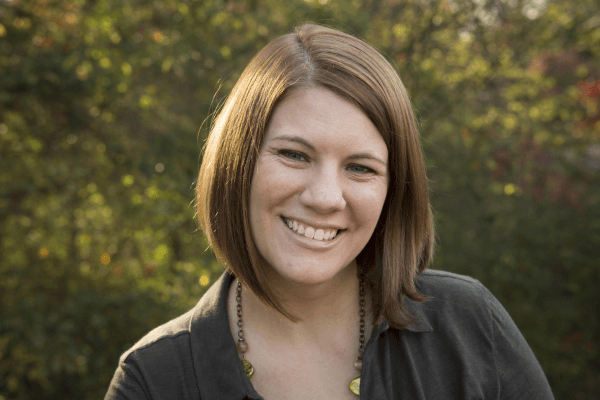Sometimes I am haunted by Glennon Doyle’s forward to the late Rachel Held Evans’ book Searching for Sunday. Doyle begins: “Whenever I want to scare myself, I consider what would happen to the world if Rachel Held Evans stopped writing.”
In 2019, about four years after those words were published, Evans died. She was 37, survived by her husband, two kids, and Christians around the world who found comfort in her faith-rooted advocacy for racial justice, LGBTQ+ rights, and egalitarianism.
Doyle was right; Evans death was indeed scary (and tragic and jarring and unfair and infuriating and honestly, God, just why?). The outspoken Christian advocate who wrote so convincingly about the beautiful dance between faith and doubt stopped writing.
Kinda. Before her death, she had a couple literary projects in process, which her loved ones finished and published after she passed, including a children’s book (What Is God Like?) and a collection of essays on finding a new kind of faith after leaving conservative evangelicalism (Wholehearted Faith). But even without these posthumous titles, her words — a unique harmony of wise, vulnerable, fearless, and funny — were already stuck in our heads. Call it a haunting or call it resurrection — I’m just so glad Rachel Held Evans’ words have stuck around.
Here are some of my favorites.
Death and resurrection. It’s the impossibility around which every other impossibility of the Christian faith orbits. Baptism declares that God is in the business of bringing dead things back to life, so if you want in on God’s business, you better prepare to follow God to all the rock-bottom, scorched-earth, dead-on-arrival corners of this world — including those of your own heart — because that’s where God works, that’s where God gardens.
— from Searching for Sunday
I have come to regard with some suspicion those who claim that the Bible never troubles them. I can only assume this means they haven’t actually read it.
— from A Year of Biblical Womanhood
But if the incarnation has anything to say about it, we don’t get to wait around for ideal circumstances to begin creating, birthing, nurturing, planting, protesting, and working together to heal the world.
— from “2016 and the Risk of Birth,” via rachelheldevans.com
I am trying to make my own way, but I haven’t yet figured out how to do that without exorcising the old one, without shouting it down, declaring my independence, and then running as fast as I can in the opposite direciton. Church books are written by people with a plan and ten steps, not by Christians just hanging on by their fingernails.
— from Searching for Sunday
I recognize that faith is always a risk. No matter what we believe, there’s always a chance we might be wrong. But the story of Jesus is just the story I’m willing to risk being wrong about.
— from “Mike Slaughter interviews Rachel Held Evans on doubt”
I almost always root for the underdog, and sometimes I get the feeling that God does too.
— from Faith Unraveled, previously titled Evolving in Monkey Town
Anger can be startling, certainly, and it might even make us uncomfortable. But anger is not a sin. Anger is the right and just response to inequity and inaction.
— from “Not As Helpless As We Think: 3 Ways to Stand In Solidarity With Ferguson” via sojo.net
We could not become like God, so God became like us. God showed us how to heal instead of kill, how to mend instead of destroy, how to love instead of hate, how to live instead of long for more. When we nailed God to a tree, God forgave. And when we buried God in the ground, God got up.
– from Searching for Sunday
When we use the word “biblical,” I would prefer that we use it descriptively, to describe that which is found in the Bible, instead of prescriptively, meaning “here’s what God wants you to do.” Because when we use it that way—prescriptively—we tend to pull out certain passages that fit our theological presuppositions and leave the rest dangling.
— from “Being Like Deborah,” in Sojourners
I’m frustrated and sad to think of all the good people who have abandoned Christianity because they felt they had to choose between their faith and their intellectual integrity or between their religion and their compassion.
– from Faith Unraveled, previously titled Evolving in Monkey Town
This glorification of gender binaries has become a dangerous idol in the Christian community, for it conflates cultural norms with Christian morality and elevates an ideal over actual people.
– from “The False God of Gender Binaries,” via rachelheldevans.com
God is like a rainbow, vivid and full of color, a dazzling reminder of promise and hope for all people after a storm.
– from What Is God Like? coauthored with Matthew Paul Turner
Faith, like a child, you never ask permission before growing,
before stretching your arms out in the world like you own the place,
before suddenly turning inside yourself,
before surprising me or disappointing me or throwing me off with some new habit, some new quirk.
Just when I think I know who you are, you evolve into someone new, and we have to get reacquainted with one another, like we’re starting all over again.
Why can’t you just stay still?
Why can’t I rock you through a lullaby without you wiggling free?
— “faith, like a child,” via rachelheldevans.com
The church is not a group of people who believe all the same things; the church is a group of people caught up in the same story, with Jesus at the center.
— from Inspired: Slaying Giants, Walking on Water, and Learning to Love the Bible Again
Correction: This article was updated on May 5 to correct the second title published by Rachel Held Evans after her death to Wholehearted Faith. An earlier version of this article incorrectly named the second title as Inspired.
What quotes from Rachel Held Evans did we miss? Let us know what you’d like to see added to this article by sending us comment via the button below.
Editor's note: This article was originally published in April 2024 and was updated with additional quotes in April 2025.
Got something to say about what you're reading? We value your feedback!







